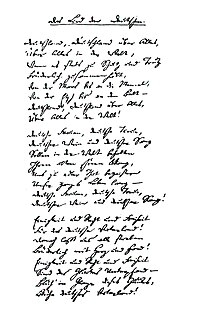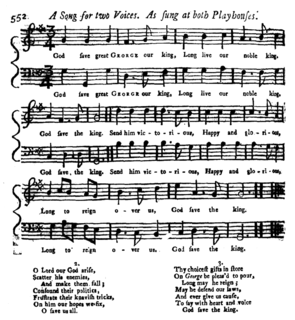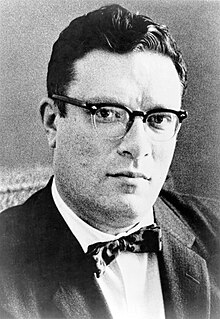Related Research Articles

The "Deutschlandlied", officially titled "Das Lied der Deutschen", or part of it, has been the national anthem of Germany since 1922. In East Germany, the national anthem was "Auferstanden aus Ruinen" between 1949 and 1990.
Espionage or spying is the act of obtaining secret or confidential information from non-disclosed sources or divulging of the same without the permission of the holder of the information. A person who commits espionage is called an espionage agent or spy. Any individual or spy ring, in the service of a government, company or independent operation, can commit espionage. The practice is clandestine, as it is by definition unwelcome. In some circumstances, it may be a legal tool of law enforcement and in others, it may be illegal and punishable by law.

"God Save the Queen" is the national or royal anthem in most Commonwealth realms, their territories and the British Crown dependencies. The author of the tune is unknown, and it may originate in plainchant; but an attribution to the composer John Bull is sometimes made.

Isaac Asimov was an American writer and professor of biochemistry at Boston University. He was known for his works of science fiction and popular science. Asimov was a prolific writer, and wrote or edited more than 500 books. He also wrote an estimated 90,000 letters and postcards.
Spy fiction, a genre of literature involving espionage as an important context or plot device, emerged in the early twentieth century, inspired by rivalries and intrigues between the major powers, and the establishment of modern intelligence agencies. It was given new impetus by the development of fascism and communism in the lead-up to World War II, continued to develop during the Cold War, and received a fresh impetus from the emergence of rogue states, international criminal organizations, global terrorist networks, maritime piracy and technological sabotage and espionage as potent threats to Western societies. As a genre, spy fiction is thematically related to the novel of adventure, the thriller and the politico-military thriller.

"The Star-Spangled Banner" is the national anthem of the United States. The lyrics come from the "Defence of Fort M'Henry", a poem written on September 14, 1814, by 35-year-old lawyer and amateur poet Francis Scott Key after witnessing the bombardment of Fort McHenry by British ships of the Royal Navy in Baltimore Harbor during the Battle of Baltimore in the War of 1812. Key was inspired by the large U.S. flag, with 15 stars and 15 stripes, known as the Star-Spangled Banner, flying triumphantly above the fort during the U.S. victory.

The Robot series is a series of 37 science fiction short stories and six novels by American writer Isaac Asimov, featuring positronic robots.

The Three Laws of Robotics are a set of rules devised by science fiction author Isaac Asimov. The rules were introduced in his 1942 short story "Runaround", although they had been foreshadowed in some earlier stories. The Three Laws, quoted from the "Handbook of Robotics, 56th Edition, 2058 A.D.", are:

A Presumption of Death is a Lord Peter Wimsey–Harriet Vane mystery novel by Jill Paton Walsh, based loosely on The Wimsey Papers by Dorothy L. Sayers. The novel is Walsh's first original Lord Peter Wimsey novel, following Thrones, Dominations, which Sayers left as an unfinished manuscript, and was completed by Walsh. A Presumption of Death is written by Walsh, except for excerpts from The Wimsey Papers.

Fantastic Voyage is a 1966 American submarine science fiction adventure film directed by Richard Fleischer and written by Harry Kleiner, based on a story by Otto Klement and Jerome Bixby. The film is about a submarine crew who are shrunk to microscopic size and venture into the body of an injured scientist to repair damage to his brain. Kleiner abandoned all but the concept of miniaturization and added a Cold War element. The film starred Stephen Boyd, Raquel Welch, Edmond O'Brien, Donald Pleasence, and Arthur Kennedy.
This is a list of short stories by American writer Isaac Asimov. Asimov is principally known for his science fiction, but he also wrote mystery and fantasy stories.

David Starr, Space Ranger is the first novel in the Lucky Starr series, six juvenile science fiction novels by Isaac Asimov that originally appeared under the pseudonym Paul French. The novel was written between 10 June and 29 July 1951 and first published by Doubleday & Company in January 1952. Since 1971, reprints have included an introduction by Asimov explaining that advancing knowledge of conditions on Mars have rendered some of the novel's descriptions of that world inaccurate. The novel was originally intended to serve as the basis for a television series, a science-fictionalized version of The Lone Ranger, but the series was never made, in part because another series called Rocky Jones, Space Ranger was already in the planning stages.

Murder at the ABA (1976) is a mystery novel by American writer Isaac Asimov, following the adventures of a writer and amateur detective named Darius Just, whom Asimov modeled on his friend Harlan Ellison. While attending a convention of the American Booksellers Association, Just discovers the dead body of a friend and protégé. Convinced that the death was due to murder, but unable to convince the police, Just decides to investigate on his own.

Azazel is a character created by Isaac Asimov and featured in a series of fantasy short stories. Azazel is a two-centimeter-tall demon, named after the Biblical demon.
Operation Simoom was a top secret Polish intelligence operation conducted in Iraq in 1990.
Banquets of the Black Widowers is a collection of mystery short stories by American writer Isaac Asimov featuring his fictional club of mystery solvers, the Black Widowers. It was first published in hardcover by Doubleday in September 1984, and in paperback by the Fawcett Crest imprint of Ballantine Books in June 1986. The first British edition was issued by Grafton in August 1986.

The Union Club Mysteries is a collection of mystery short stories by American author Isaac Asimov featuring his fictional mystery solver Griswold. It was first published in hardcover by Doubleday in 1983 and in paperback by the Fawcett Crest imprint of Ballantine Books in 1985.
"Sixty Million Trillion Combinations" is a short mystery story by American writer Isaac Asimov. It was first published in the May 5, 1980, issue of Ellery Queen's Mystery Magazine, and reprinted in Banquets of the Black Widowers (1984) and The Return of the Black Widowers (2003). Asimov originally entitled it "Fourteen Letters", but the magazine's title was kept in subsequent uses of the story. The story is one of a collection of short mysteries whose characters are based loosely upon the Trap Door Spiders, a stag-club of which Asimov was a member.
"Getting Even" is a fantasy short story by American writer Isaac Asimov. It is the first story in his series of Union Club mysteries, and also the first in his Azazel fantasy series. It first appeared in the August 1980 issue of Gallery.
"The Ultimate Crime" is a short story by Isaac Asimov, dealing with a minor aspect of one of the Sherlock Holmes stories of Sir Arthur Conan Doyle. It is the 24th of Asimov's Black Widowers mystery stories, and it appeared in his anthology More Tales of the Black Widowers, which collects the second dozen stories of the series. It was written specially for that book. It subsequently appeared again in Sherlock Holmes Through Time and Space, an anthology of stories written by different authors and co-edited by Asimov, and Another Round at the Spaceport Bar.